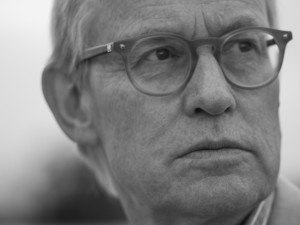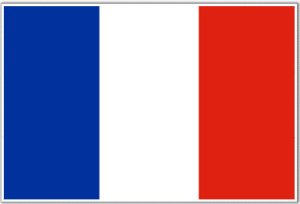13 October 2016
Juppé? Qui est-il?
The Republican party primary this side of the Atlantic.
by Richard Pooley

 The Trump-Clinton battle is not the only important presidential election going on at present. The French version has started in earnest, with the first two-round primary to choose the right-of-centre Republican Party candidate only two months away. Any British person could be forgiven, though, if the French election has not grabbed their attention. First, there are only 4 weeks to go before we know the US result (assuming no hanging chads in Florida or a Trump-led coup d’état), whereas the French won’t know who their new president is until the early hours of 8 May next year. Second, many pundits are predicting Armageddon should Trump win, but few commentators (even French ones) think much hinges on the French result. This may explain why there is so little commentary in the UK on the French election. And what reporting there is focuses on just three of the probable thirteen candidates – François Hollande, Nicolas Sarkozy and Marine Le Pen. Yet only one of these three has a realistic chance of winning. Finally, the French themselves are already bored by their own election and far more interested (and alarmed) by what is happening across the Atlantic.
The Trump-Clinton battle is not the only important presidential election going on at present. The French version has started in earnest, with the first two-round primary to choose the right-of-centre Republican Party candidate only two months away. Any British person could be forgiven, though, if the French election has not grabbed their attention. First, there are only 4 weeks to go before we know the US result (assuming no hanging chads in Florida or a Trump-led coup d’état), whereas the French won’t know who their new president is until the early hours of 8 May next year. Second, many pundits are predicting Armageddon should Trump win, but few commentators (even French ones) think much hinges on the French result. This may explain why there is so little commentary in the UK on the French election. And what reporting there is focuses on just three of the probable thirteen candidates – François Hollande, Nicolas Sarkozy and Marine Le Pen. Yet only one of these three has a realistic chance of winning. Finally, the French themselves are already bored by their own election and far more interested (and alarmed) by what is happening across the Atlantic.
So, why should the Brits be more concerened? The answer is simple: Brexit. Whoever wins the French election is going to have a major say in the negotiations with the UK, set to start just weeks before he or she takes office. Will he be a long-time proponent of an ever-closer European Union, led by France and Germany, or will she be someone elected on a policy of dumping the Euro, returning power from Brussels to Paris and closing French borders to migrants and refugees – i.e. Frexit in all but name? That is almost certainly the choice that French voters will face after the first round of their election on 23 April. Who will they choose: Alain Juppé or Marine Le Pen?
Alain Juppé? The name might ring a bell with Brits who take an interest in European politics. But they will probably need to be over forty years old. He was the French prime minister under President Jacques Chirac from 1995 until his hugely unpopular reforms forced him to resign in 1997. However, he first came to prominence when he worked for Chirac during the old rogue’s time as mayor of Paris in the late 70s and early 80s. He had various top jobs from 1986 before becoming PM in 1995. But then came his fall from grace. He was convicted of corruption in 2004 and largely disappeared from national politics for six years. He became mayor of his beloved Bordeaux for the second time in 2006 and has spent the last ten years turning it into one of the most dynamic cities in France. He returned to the national stage, his sins forgiven, in November 2010 and served as Defence Minister and then Foreign Minister under President Sarkozy until his boss was kicked out in May 2012. And now, at the age of 71, he wants to be President; to convince the French that the only way to reduce unemployment and revivify the French economy is for the Government to spend less, reduce French companies’ labour costs and improve education. And for the French people to work longer weeks for more years.
A poll on 6 October of those certain to vote in the Republican Party primary’s first round on 20 November found 39% intending to plump for Juppé. A month earlier he and Sarkozy had been level on 37%. Sarkozy has slipped to 35%. The other five Republican candidates are nowhere: another former PM, François Fillon, is on 12%, and fourth is Bruno Le Maire on 8%. The latter’s supporters appear certain to vote for Juppé in the second round. The poll predicted that in the primary’s second-round tussle with Sarkozy, Juppé will get 53%. That may not seem a comfortable margin of victory but Juppé’s poll ratings are going the right way. In another poll on the same day, he was regarded positively by 31% of French voters as a whole, up 10% on his score just a month earlier. He was top of the list of all thirteen probable candidates. Sarkozy, by contrast, was seen positively by just 18% of French voters, down 2%. And Le Pen? 24%. Hollande? 16%.
The one person who could upset all current predictions is left-of-centre Emmanuel Macron, who recently resigned as Hollande’s Economy Minister. He has yet to say whether he will run for President as the head of En Marche!, the political movement he launched on 6 April this year. 22% of voters currently view him positively, up 3% on a month ago.
Even if Sarkozy were to beat Juppé in the primary, the ex-President is unlikely to garner more votes than the standard-bearer of the Left in the first round of the election itself. Many centrist voters will prefer to vote for the Left’s candidate than for Sarkozy, who has spent the past year trying to appear more anti-immigrant and nationalist than Le Pen and her Front National (see my article Own Gaul in the 29th September edition). Juppé, on the other hand, will hoover up these centrist votes. Le Pen would love to have a second-round battle with whomever the Left puts up. Faced with a choice between the representative of the discredited and divided Socialist Party and Le Pen, even those voters in the centre might vote for her. The one person she does not want to be up against is Juppé.
So, what was this corruption Juppé was convicted of? And how come he has been forgiven?
It was called the “Ghost Jobs Scandal”. When he was mayor of Paris, Jacques Chirac used the council’s money to fund some five hundred fake jobs for his political cronies and help him in his campaign to become President. And who facilitated this and took the rap in 2004? His henchman, Alain Juppé. Just as bad is how Juppé and other senior council officials benefited from paying only peppercorn rents for large flats in the smart 6th arrondissement. Juppé paid half the going rate for a six-bedroom flat and made the taxpayer pay for its renovation before he moved in. Four members of his family, including his ex-wife, also each got a flat. It’s hard to imagine that any British politician would be able to come back from such a scandal. But Juppé has, largely because he was prepared to take all the blame for the corrupt behaviour of others, notably Chirac. His loyalty and acceptance of his sentence (reduced after appeal, nonetheless) is regarded as noble.
Juppé is an uninspiring speaker who finds it hard to connect with ordinary people. He is almost always seen in a dark suit and tie, even when among tourists in t-shirts, shorts and flip-flops, as he was recently on a hot summer’s day on the Côte d’Azur. He finds walkabouts painful; his campaign team are often the ones who do the chatting and hand-shaking. Does he prefer the company of the political and intellectual élite? After all he is acknowledged to be ferociously bright. He attended not one but three of France’s most prestigious grandes écoles – the École normale supérieure, Sciences Po and the École nationale d’administration. In interviews and in speeches, he comes across as professorial. I suspect that this is what appeals to so many. His is a calm and comforting voice in a world which has lately been filled with grating and strident ones.
If you enjoyed this article please share it using the buttons above.
Please click here if you would like a weekly email on publication of the ShawSheet

